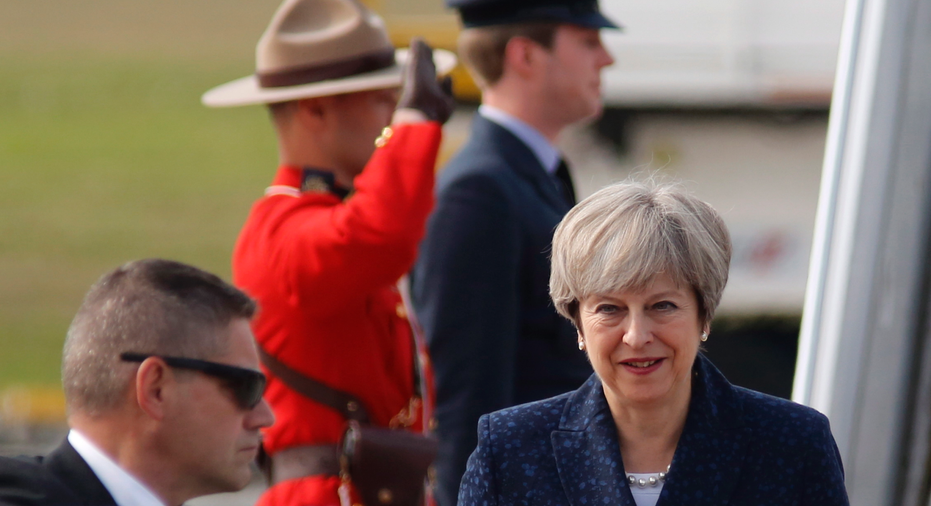Opposition sees Brexit 'chaos' in UK govt shifts and feuds

LONDON – The British government's attempt to appear strong and united over Brexit wobbled Monday as a top official was shifted from his post days before a new round of divorce negotiations with the European Union. Opposition lawmakers said the move reflected the Conservatives' "chaotic" approach to handling the biggest challenge facing the country.
Prime Minister Theresa May, meanwhile, faced calls to discipline fellow Conservative Foreign Secretary Boris Johnson for undermining her leadership by publishing his own manifesto for Brexit.
A week before negotiations between Britain and the bloc are due to resume in Brussels, the U.K. government announced Monday that the top civil servant on its negotiating team had left the Department for Exiting the European Union. The department said Oliver Robbins was moving to become May's EU adviser.
The move follows reports of friction between Robbins and Brexit Secretary David Davis, the U.K.'s top negotiator.
Opposition Labour Party Brexit spokesman Keir Starmer said the shuffle "adds a whole new dimension to government's chaotic approach to Brexit."
In March, Britain triggered a two-year countdown to departure from the 28-nation EU. Since then, negotiations have made little progress on key issues including the status of the Ireland-Northern Ireland border and the amount Britain must pay to settle its financial commitments to the bloc.
EU officials say talks can't move on to future relations with Britain until key divorce terms have been agreed upon. May is making a major speech Friday in Florence, Italy, that is intended to help break the logjam.
But before she could speak, Johnson laid out his own vision of Britain's future outside the EU in a 4,000-word article for the Sunday Telegraph newspaper. It called for the U.K. to adopt a low-tax, low-regulation economy outside the EU's single market and customs union.
The article drew rebukes from May's Cabinet allies — and sparked immediate speculation that Johnson wants to replace May as leader of the Conservative Party.
Unlike May, who campaigned to stay in the EU before last year's referendum, Johnson was an enthusiastic supporter of the "leave" side. He has the support of some Brexit-backing Conservative lawmakers, who worry that May will settle for a compromise "soft Brexit" that somehow keeps Britain inside the EU's single market.
Some lawmakers called on May to fire Johnson — whose bumbling, jokey persona masks intense political ambition — but she is likely in too weak a position to do so. Her authority was severely undermined when she called an early June 8 election in a bid to increase her majority — only to see the Conservatives reduced to a minority administration.
May said Monday that "Boris is Boris," but insisted she was firmly in charge.
"The U.K. government is driven from the front, and we all have the same destination in our sights, and that is getting a good deal for Brexit with the European Union," she said during a news conference with Canadian Prime Minister Justin Trudeau in Ottawa.
Johnson's article also was criticized by Britain's statistics regulator, which accused him of misleadingly claiming that leaving the EU will give Britain control of an extra 350 million pounds ($475 million) a week.
U.K. Statistics Authority chief David Norgrove called the figure "a gross misuse of official statistics." He said the 350 million pounds was a gross rather than net figure. It doesn't take into account a substantial rebate that Britain receives before the money is sent, or money the EU sends to Britain, which reduces the figure to about half the amount cited.
Also Monday, the British government called for a wide-ranging security treaty with the EU to ensure that intelligence-sharing and law-enforcement cooperation continue after Brexit. Such a deal would allow Britain to remain a member of the EU police body Europol and keep use of the European Arrest Warrant, which allows for the quick extradition of suspects.
But it is unclear what legal framework would underpin such a treaty, because Britain says it will leave the jurisdiction of the European Court of Justice.



















